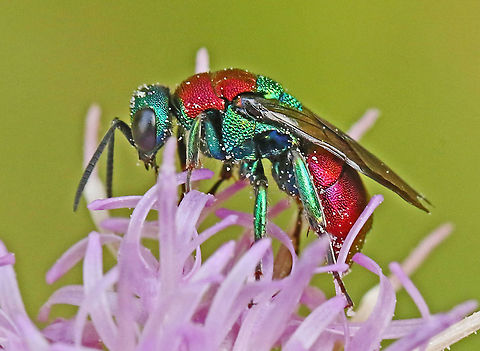
Appearance
''Hedychrum nobile'' can reach a length of 4–9 millimetres . Head, scutellum, post scutellum and median segment are blue or green, pronotum, mesonotum and the abdomen are golden purple.Another "species", Hedychrum niemelai - identical in appearance(!), has been described by Linsenmaier in 1959 (originally as a variant under another species name). The two can be separated based on structural elements and setae on the ventral side of the thorax (microscopic examination needed). Today, many authors treat Hedychrum niemelai as a species in its own right, but some will keep it in synonymy with Hedychrum nobilis. Over the entire rage Hedychrum nobilis seems to be (by far) the most common of the two.
Naming
* ''Hedychrum nobile antigai'' Du Buysson, 1896⤷ ''Hedychrum nobile nobile''
Distribution
This species can be found in Austria, France, Germany, Greece, Italy, Poland, Portugal, Spain, Switzerland, in the East Palearctic ecozone and in North Africa.Habitat
These wasps fly from mid-June to September. Usually they prefer sandy habitats and rocky slopes. The main host species of this parasitic wasp is ''Cerceris arenaria''.References:
Some text fragments are auto parsed from Wikipedia.